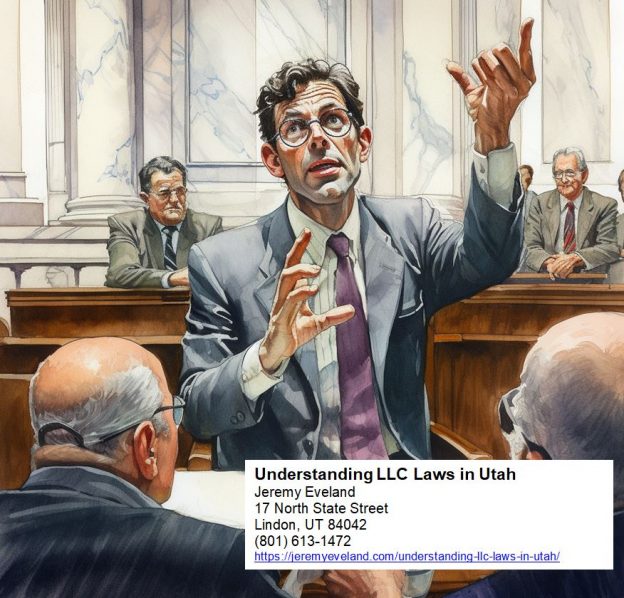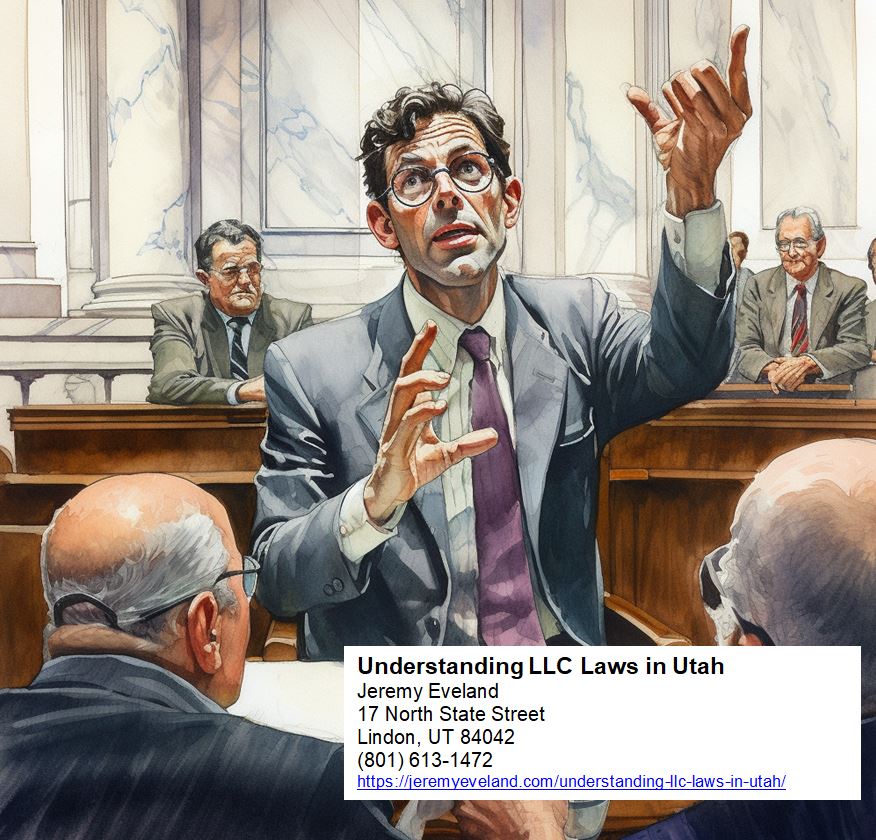In today’s digital age, telemarketing continues to be an effective strategy for businesses to connect with potential customers. However, navigating the complex landscape of telemarketing regulations can be overwhelming and time-consuming. That’s where our Telemarketing Compliance Guide comes in. This comprehensive resource will provide you with the essential knowledge and practical tips to ensure your telemarketing practices are fully compliant with the law. From understanding the regulations governing cold calling to obtaining proper consent and managing call records, this guide will equip you with the tools you need to confidently navigate the telemarketing realm. Don’t risk fines or legal complications – let our Telemarketing Compliance Guide serve as your trusted resource in maintaining a compliant and successful telemarketing campaign.
Telemarketing Compliance Guide
Telemarketing Compliance is an essential aspect for businesses engaging in telemarketing activities. It refers to adhering to specific laws, regulations, and best practices that govern telemarketing operations. Failing to comply with these requirements can have serious legal consequences, damage business reputation, and result in costly litigations and penalties. Therefore, understanding and implementing telemarketing compliance measures is crucial for businesses to protect consumers, maintain trust, and ensure legal compliance.

1. What is Telemarketing Compliance?
1.1 Definition of Telemarketing Compliance
Telemarketing compliance refers to the process of following rules and regulations set forth by various laws to protect consumers and ensure ethical and legal conduct during telemarketing activities. It entails obtaining appropriate consent from consumers, maintaining internal do not call (DNC) lists, complying with specific calling time restrictions, and adhering to other guidelines to prevent unwanted solicitations.
1.2 Scope of Telemarketing Activities
Telemarketing activities encompass any marketing or sales efforts conducted through telephone communication. This includes making outbound calls to potential customers, conducting market research, collecting customer feedback, and promoting products or services. Additionally, inbound calls received in response to direct marketing efforts also fall under the purview of telemarketing compliance.
1.3 Compliance for Inbound and Outbound Calls
Telemarketing compliance measures apply to both inbound and outbound calls. For outbound calls, businesses must ensure compliance with telemarketing laws and regulations to protect consumers’ privacy rights and avoid any disruptive or harassing behavior. Similarly, inbound calls should be handled in accordance with relevant rules to ensure transparency and compliance.
1.4 Differentiating between Telemarketing and Non-Telemarketing Calls
It is essential to differentiate between telemarketing and non-telemarketing calls to determine the appropriate compliance measures. Telemarketing calls involve promotional or sales-related activities, while non-telemarketing calls are generally for non-commercial purposes, such as informational or customer service calls. Understanding this distinction is vital to ensure compliance with relevant regulations and avoid any non-compliance issues.
2. Why is Telemarketing Compliance Important?
2.1 Protecting Consumers from Unwanted Solicitations
Telemarketing compliance plays a significant role in protecting consumers from unwanted solicitations. By adhering to regulations, businesses can ensure that their marketing calls are not intrusive or disruptive to individuals. Compliance measures, such as obtaining consent and honoring consumer preferences, demonstrate respect for consumer privacy rights and help build trust between businesses and their potential customers.
2.2 Maintaining Business Reputation and Trust
Compliance with telemarketing regulations is crucial for maintaining a positive business reputation and fostering trust with consumers. Unwanted solicitations or a failure to respect consumer preferences can lead to negative reviews, loss of customers, and damage to a company’s brand image. Prioritizing telemarketing compliance helps businesses demonstrate their commitment to ethical practices and reinforces their reputation as reliable and trustworthy organizations.
2.3 Avoiding Costly Litigation and Penalties
Non-compliance with telemarketing laws can result in costly litigation and penalties. Regulatory bodies and consumer protection agencies actively monitor telemarketing activities and enforce compliance. Violating regulations, such as making unsolicited calls or failing to maintain DNC lists, can lead to legal action and hefty fines. By adhering to telemarketing compliance requirements, businesses can avoid unnecessary legal troubles and financial consequences.
2.4 Gaining Competitive Advantage
Maintaining telemarketing compliance can actually provide a competitive advantage for businesses. By adopting best practices and demonstrating a commitment to consumer protection, businesses can differentiate themselves from non-compliant competitors. Additionally, companies that prioritize telemarketing compliance are more likely to build positive relationships with consumers, leading to increased customer loyalty and higher conversion rates.
3. Applicable Laws and Regulations
To ensure telemarketing compliance, businesses must be aware of and adhere to various laws and regulations governing telemarketing activities. Some of the key regulations include:
3.1 Telephone Consumer Protection Act (TCPA)
The TCPA is a federal law in the United States that imposes restrictions on telemarketing calls, auto-dialing systems, and pre-recorded messages. It requires businesses to obtain prior express written consent from consumers before placing telemarketing calls to their numbers. The TCPA also regulates calling time restrictions, abandoned calls, and provides consumers with the right to opt-out of future solicitation calls.
3.2 Telemarketing Sales Rule (TSR)
The TSR, enforced by the Federal Trade Commission (FTC), establishes rules specifically for telemarketing sales. It requires telemarketers to disclose certain information during calls, such as the identity of the seller and the purpose of the call. The TSR also mandates compliance with the National Do Not Call Registry and restricts telemarketing practices related to prize promotions and other offers.
3.3 National Do Not Call Registry
The National Do Not Call Registry allows consumers to opt-out of receiving telemarketing calls by registering their phone numbers. Telemarketers are required to regularly update their calling lists against the numbers listed on the registry and honor consumers’ preferences to avoid unwanted solicitations.
3.4 State-Specific Telemarketing Laws
In addition to federal laws, businesses must also comply with state-specific telemarketing laws. These laws may impose stricter requirements or additional regulations on telemarketing practices within specific states. Understanding and adhering to these state laws is crucial to maintain compliance at both the federal and state levels.
4. Understanding the Telephone Consumer Protection Act (TCPA)
4.1 Overview of the TCPA
The TCPA was enacted to protect consumers from unsolicited telemarketing calls. It sets forth specific provisions that businesses must comply with when engaging in telemarketing activities. Understanding the key aspects of the TCPA is crucial for maintaining telemarketing compliance.
4.2 Prohibitions and Restrictions under the TCPA
The TCPA prohibits various practices, such as making auto-dialed calls or sending pre-recorded messages without prior express written consent. It also imposes restrictions on calling time, prohibiting telemarketing calls outside of certain designated hours. Additionally, the TCPA addresses abandoned calls, which occur when a telemarketing call is not answered or is terminated before a live representative is available to speak.
4.3 Consent Requirements
One of the foundational elements of TCPA compliance is obtaining proper consent. The TCPA requires businesses to obtain prior express written consent from consumers before initiating telemarketing calls. This consent must be clear, unambiguous, and obtained voluntarily. Proper consent plays a vital role in protecting consumer privacy, ensuring compliance, and avoiding legal disputes.
4.4 Types of Calls Covered by the TCPA
The TCPA covers various types of calls, including both voice and text-based communication. It applies to calls made for commercial purposes, such as sales calls or promotional messages. It is important to understand the scope of the TCPA to ensure compliance with its provisions and avoid potential legal consequences.

5. Compliance Requirements under the TCPA
5.1 Prior Express Written Consent
To comply with the TCPA, businesses must obtain prior express written consent from consumers before placing telemarketing calls to their numbers. Written consent can be obtained through traditional written agreements, electronic forms, or recorded verbal consent. It is essential to clearly document and store proof of consent to demonstrate compliance in case of any disputes or legal challenges.
5.2 Identification and Disclosure Requirements
Telemarketers must identify themselves and disclose certain information during telemarketing calls to ensure transparency and compliance. This includes providing the name of the seller or organization, the purpose of the call, and any relevant terms and conditions. Clear and accurate identification and disclosure help consumers make informed decisions and avoid deceptive or misleading telemarketing practices.
5.3 Calling Time Restrictions
The TCPA establishes specific calling time restrictions to protect consumers from receiving telemarketing calls at inconvenient times. Businesses must refrain from making telemarketing calls outside of designated hours, typically between 8 a.m. and 9 p.m. local time at the consumer’s location. Adhering to these time restrictions is essential to avoid potential complaints and penalties for non-compliance.
5.4 Abandoned Calls and Call Frequency Limits
To prevent the annoyance and frustration caused by abandoned calls, telemarketers must ensure that a live representative is available to speak with the consumer as soon as the call is answered. The TCPA sets specific requirements regarding the maximum permissible rate of abandoned calls and establishes limits on call frequency to avoid excessive and harassing telemarketing practices.
5.5 Opt-Out Mechanism
The TCPA mandates that telemarketers provide consumers with an opt-out mechanism to stop receiving telemarketing calls. This usually involves providing an automated interactive voice response (IVR) system or directing consumers to a specific phone number to opt-out. Honoring these opt-out requests is crucial to maintain compliance and respect consumer preferences.
6. Telemarketing Do’s and Don’ts
6.1 Do’s for Telemarketing Compliance
To ensure telemarketing compliance, businesses should adopt the following best practices:
- Obtain proper consent before initiating telemarketing calls.
- Clearly identify the purpose of the call and the organization representing the caller.
- Adhere to calling time restrictions to avoid calling consumers outside of permitted hours.
- Train telemarketing representatives on compliant practices and provide regular compliance updates.
- Establish internal processes to ensure accurate recordkeeping and documenting of consent and opt-out requests.
- Regularly review and update telemarketing compliance policies and procedures.
6.2 Don’ts for Telemarketing Compliance
Businesses should avoid the following practices to maintain telemarketing compliance:
- Making unsolicited telemarketing calls without obtaining proper consent.
- Failing to provide clear identification and disclosure during telemarketing calls.
- Disregarding calling time restrictions and calling consumers outside of designated hours.
- Ignoring opt-out requests and continuing to make telemarketing calls to consumers who have opted out.
- Engaging in aggressive or harassing behavior during telemarketing calls.
- Neglecting to update internal DNC lists and failing to honor customer preferences.
7. Obtaining Consent for Telemarketing
7.1 Voluntary Opt-In Consent
Obtaining voluntary opt-in consent is a critical step in telemarketing compliance. This consent should be obtained from consumers before placing telemarketing calls to their numbers. Voluntary opt-in consent ensures that consumers are aware of the purpose of the calls and have willingly agreed to receive them. Establishing clear processes and mechanisms to obtain consent is crucial to meet compliance requirements.
7.2 Written Consent Requirements
Written consent is often the preferred method of obtaining consent for telemarketing calls. It provides a documented trail of the consumer’s agreement and helps protect businesses in case of any legal disputes. Written consent should clearly outline the scope of the telemarketing calls, the right to opt-out, and any relevant terms and conditions. Maintaining detailed records of written consent is essential for demonstrating compliance.
7.3 Consent Revocation
Consumers have the right to revoke their consent to receive telemarketing calls at any time. Businesses must respect and honor such revocation requests promptly. Establishing a reliable opt-out mechanism, such as an IVR system or a dedicated phone number, allows consumers to easily opt-out of receiving future telemarketing calls. Promptly removing consumers from the calling list upon receipt of opt-out requests is crucial for maintaining compliance.
8. Maintaining an Internal Do Not Call (DNC) List
8.1 Importance of a Do Not Call (DNC) List
Maintaining an internal Do Not Call (DNC) list is a fundamental requirement for telemarketing compliance. A DNC list consists of phone numbers of individuals or entities who have expressed their preference to not receive telemarketing calls. By regularly updating and adhering to the DNC list, businesses demonstrate commitment to consumer privacy, minimize unwanted solicitations, and maintain compliance with applicable laws.
8.2 Building and Updating the DNC List
Building a comprehensive and accurate DNC list involves collecting and recording opt-out requests from consumers. Businesses should make it easy for consumers to opt-out and ensure that their preferences are promptly tracked and added to the DNC list. Regularly updating the DNC list and removing numbers from active calling campaigns is crucial to prevent unintended calls to individuals who have opted out.
8.3 DNC List Exemptions
While the DNC list serves as a crucial tool for telemarketing compliance, there are certain exemptions that allow specific calls even to numbers listed on the DNC list. Exemptions may vary based on the nature of the call, such as calls for informational purposes, surveys, or calls from existing customer relationships. It is important for businesses to understand these exemptions and implement processes to ensure compliance when they apply.
8.4 Repercussions of Calling Numbers on the DNC List
Calling numbers listed on the DNC list is a serious violation of telemarketing compliance. Businesses that make calls to these numbers may face legal consequences, including substantial fines and potential litigation from consumers. To avoid such repercussions, it is crucial for businesses to regularly update their calling lists, screen numbers against the DNC list, and maintain strict compliance with consumer preferences.

12. Seeking Legal Advice for Telemarketing Compliance
12.1 Benefits of Consulting an Attorney
Seeking legal advice is highly recommended for businesses to ensure comprehensive compliance with telemarketing laws and regulations. Telemarketing compliance can be complex, and engaging an experienced attorney helps businesses navigate and understand the legal requirements specific to their operations. Attorneys specialized in telemarketing compliance can provide valuable guidance on regulatory changes, help develop appropriate compliance policies, and mitigate legal risks.
12.2 Ensuring Comprehensive Compliance
Legal advice is crucial in ensuring businesses achieve comprehensive compliance with various telemarketing laws and regulations. Attorneys can review telemarketing practices, identify potential compliance gaps, and recommend necessary measures to address those gaps. With their expertise, attorneys can guide businesses in implementing effective compliance strategies that protect both consumer interests and business objectives.
12.3 Guidance in Case of Allegations or Litigation
In the event of allegations or litigation related to telemarketing compliance, having legal representation is vital. Attorneys can provide guidance on responding to allegations, gathering evidence, and developing a strong defense strategy. Their expertise in telemarketing compliance can help businesses navigate legal challenges and effectively protect their interests throughout the litigation process.
FAQs:
Q1: What is the National Do Not Call Registry? The National Do Not Call Registry is a database maintained by the Federal Trade Commission (FTC), allowing consumers to opt-out of telemarketing calls. By registering their phone numbers, consumers can indicate their preference to not receive unsolicited telemarketing calls. Telemarketers are required to regularly update their calling lists against the numbers on the registry to honor consumer preferences.
Q2: Are there any exemptions to the Do Not Call (DNC) list? Yes, there are certain exemptions to the Do Not Call (DNC) list. These exemptions may include calls for informational purposes, surveys, or calls from existing customer relationships. However, the specific exemptions can vary depending on the jurisdiction and the nature of the call. It is important for businesses to understand and comply with the applicable exemptions while maintaining their DNC lists.
Q3: What are the consequences of non-compliance with telemarketing laws? Non-compliance with telemarketing laws can have serious consequences for businesses. Regulatory bodies and consumer protection agencies actively monitor telemarketing activities and enforce compliance. Businesses that fail to comply may face legal action, substantial fines, and damage to their reputation. Additionally, non-compliant telemarketing practices can lead to litigation from consumers, resulting in further legal and financial implications.
Q4: Can I use automated dialing systems for telemarketing calls? The use of automated dialing systems for telemarketing calls is subject to regulations imposed by the Telephone Consumer Protection Act (TCPA) and other specific laws. Prior express written consent is generally required before using auto-dialing systems or sending pre-recorded messages for telemarketing purposes. It is important to ensure compliance with applicable regulations and obtain appropriate consent before using automated dialing systems.
Q5: How can an attorney help with telemarketing compliance? An attorney specializing in telemarketing compliance can provide valuable guidance and legal support to businesses. They can assess telemarketing operations, identify compliance gaps, and offer recommendations for mitigating legal risks. Attorneys can also help develop comprehensive compliance policies, guide businesses through regulatory changes, and provide representation in the case of allegations or litigation related to telemarketing compliance.



















